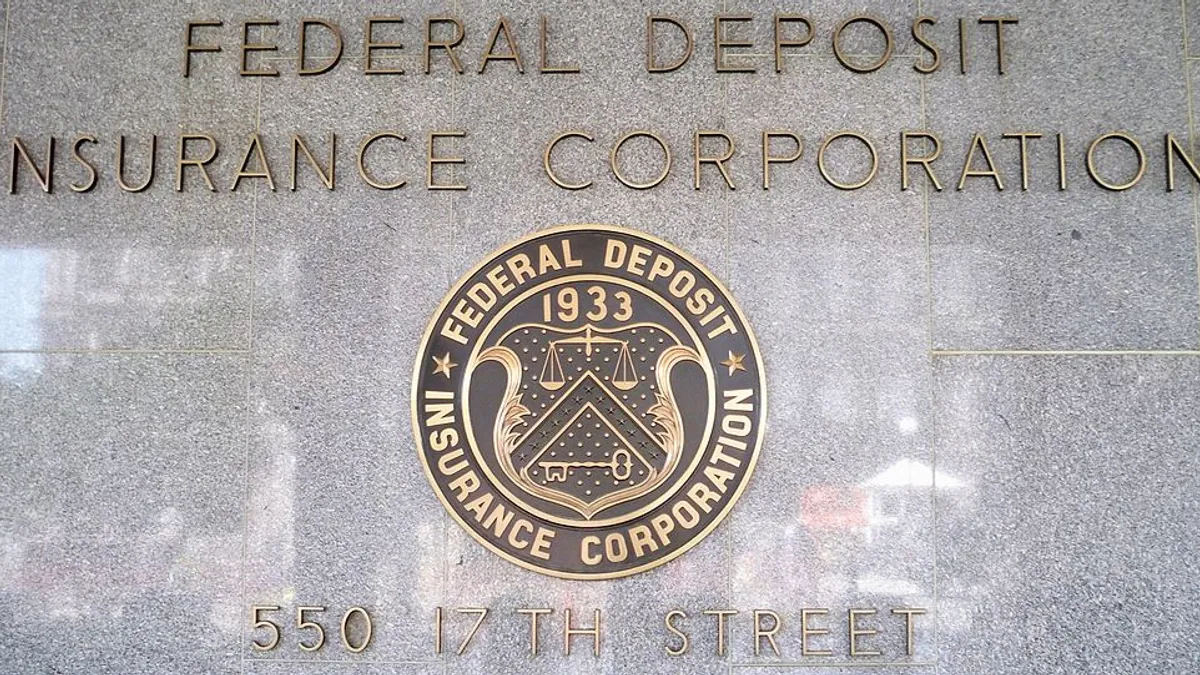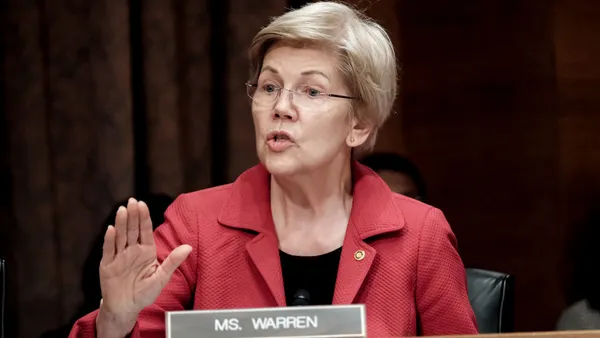Dive Brief:
-
Banks would only need to set aside funds to cover defaults in deals involving external swaps participants, according to a Federal Deposit Insurance Corp. (FDIC) proposal issued Tuesday, according to American Banker.
- The plan would no longer require banks to collect margins from affiliates engaged in an internal swaps trade. The Federal Reserve and the Office of the Comptroller of the Currency (OCC) are expected to follow suit, people familiar with the matter told Bloomberg.
- The proposal marks a continuing trend of deregulation during the Trump administration. Regulators have proposed easing stress tests and overhauling the Volcker Rule in recent months.
Dive Insight:
The margin requirement was implemented in 2015 to protect bank subsidiaries that handle customers' deposits.
But lobbyists from such swaps dealers as Goldman Sachs, JPMorgan Chase and Citigroup argued the rule left U.S. banks with $39.4 billion in untapped resources and put them at a competitive disadvantage against foreign financial institutions.
"Exchanging initial margin with unaffiliated counterparties is an important protection … against the risk of counterparty default," FDIC Chairman Jelena McWilliams said in a statement Tuesday. "However, inter-affiliate transactions, conducted among entities that are part of the same banking organization, are often used by banks for internal risk management purposes."
Trump administration watchdogs have contended the margin rule may be redundant, adding that other regulations cover swaps-related risks.
Initial margin collateral is "locked up, frozen, and available only in the event that the affiliate fails — a scenario that has become much less likely" since the 2007-08 crisis that birthed the rule.
Industry groups applauded regulators' effort. Financial Services Forum President and CEO Kevin Fromer said the proposal "preserves core safeguards to the derivatives markets."
"While the details must be carefully reviewed, this proposal reflects common-sense reforms that aim to help level the playing field for domestic banks, lower the costs for end-users, and promote safety and soundness within the global financial system," he said in a statement.
The American Bankers Association, meanwhile, called the proposal a "sensible change [that] will ensure that U.S. rules are consistent with international standards," according to American Banker.
Martin Gruenberg, an FDIC board member and past chairman, voted against the proposal, saying it would “remove an important prudential protection from the bank and expose the bank to one of the most significant risks identified in the financial crisis.”
Republican lawmakers have tended to side with lobbyists regarding the swaps rule. In June, 17 Democrats wrote the Fed, FDIC and OCC to modify the rule, arguing that the cost to consumers and "corporate end-users" outweigh the benefit of forcing banks to hold onto "unusable, locked-up collateral."












